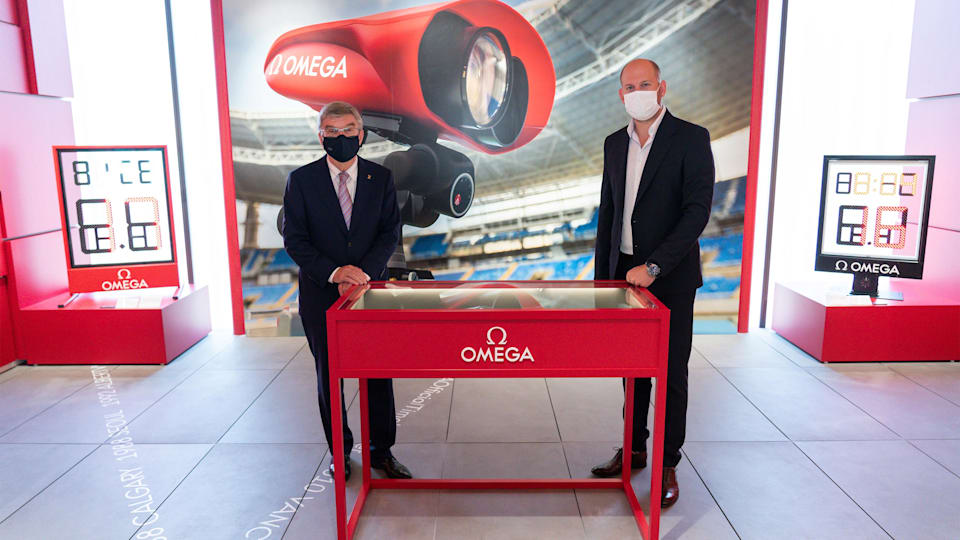OMEGA’s tradition of Olympic timekeeping innovations continues at Tokyo 2020
President of the International Olympic Committee Thomas Bach and CEO of OMEGA Timing Alain Zobrist met in Tokyo to launch OMEGA’s presence in Tokyo as the brand begins its role as Official Timekeeper.

Worldwide Olympic Partner OMEGA is set to unveil ground-breaking motion-sensing and positioning systems during this year’s Olympic Games Tokyo 2020, with the Official Timekeeper giving fans a totally new understanding of each athlete’s performance.
Building on the company’s long legacy of Olympic timekeeping innovations, which stretches back to the Olympic Games Los Angeles 1932, OMEGA’s latest technologies will collect a comprehensive range of real-time data during events – providing athletes, coaches and fans with greater insights than ever before.
“The Olympic Games is about sports, and sports is about results. Without OMEGA there are no results,” said President Bach. We have built a friendship with OMEGA, and we are always excited about how OMEGA is driving timekeeping forward and adapting it to the new world we are living in. We have the same interests: to serve the athletes, to enrich their experience and enrich the experience of fans all over the world.“
In athletics, for instance, athletes will be fitted with motion-sensor tags on their start numbers, which will interact with receivers around the track.
OMEGA will then be able to provide real-time information, such as live positions during races, live speed, acceleration, deceleration and total distance.
In swimming, meanwhile, image-tracking cameras around the pool will be used to track the exact movements of each swimmer and provide similar data, including the number of strokes and the distances between swimmers.
Image-tracking cameras will also be used in beach volleyball, providing detailed information on how each point was scored, including the speed of the ball and how high the players jumped for each shot.
A slightly different technology will be used in gymnastics – known as Pose Detection. This incredibly advanced system registers the complete movements of each athlete and will also be used as an adjudication tool for judges.
OMEGA’s latest innovations will also be seen in equestrian events, with special image-tracking technology following the action, and laser detection being used to pinpoint the horses’ movements. This will provide data such as the time of flight and trajectory over jumps and the rider’s exact path around the course.
Tokyo 2020 will be the 29th time that OMEGA has acted as Official Timekeeper for the Olympic Games, with the company set to measure every second of action across 339 events in 33 sports. This monumental task will require 400 tonnes of equipment, 530 timekeepers and on-site professionals, 900 trained volunteers, 350 sport-specific scoreboards, 85 public scoreboards and approximately 200km of cables and optical fibre.
OMEGA’s cutting-edge motion-sensing and positioning systems for Tokyo 2020 follow the introduction of similarly ground-breaking innovations at previous editions of the Olympic Games.
These include the introduction of swimming touchpads at the Olympic Games Mexico City 1968, enabling swimmers to “stop the clock” when finishing, and the first false start detection device in athletics, which was introduced at the Olympic Games Los Angeles 1984.
In 2017, OMEGA extended its Worldwide Olympic Partnership with the IOC through to 2032, when the company will mark 100 years since it started its relationship with the Olympic Games.